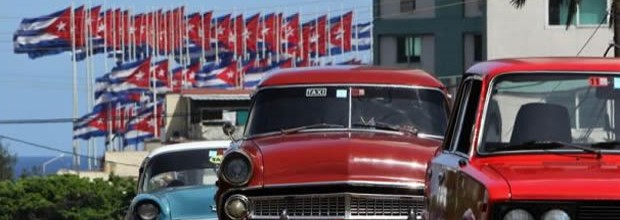
What’s going on with Cuba?
HAVANA – On Nov. 8, President Barack Obama declared in Miami that it was necessary to “update” U.S. policy toward Cuba.
Heads everywhere turned.
From my point of view, the purpose of Obama’s visit to Miami was exactly as advertised: to collect money and promote the Democratic Party campaign for the mid-term elections next year.
What’s relevant is that the place chosen for that statement was the home of the chairman of the Cuban-American National Foundation, and that the topic selected to attract the Cuban-American electorate was the need to transform U.S. policy toward the island.
How times change! many might say.
Three days later, Secretary of State John Kerry expressed himself with the same language when addressing representatives to the Organization of the American States. In truth, he said nothing new, but the rhetoric itself indicates that the United States no longer finds it viable to maintain a policy that isolates Cuba from the continental concert and at the very least must offer hopes of the change demanded by the Latin American countries.
Especially, as we look toward the 2015 Summit of the Americas, which many leaders said they wouldn’t attend if Cuba was excluded.
Another Cuba-related event caught the attention of the media. On Nov. 26, the Cuban Interests Section in Washington announced the need to cancel its consular operations because no American bank — or foreign bank accredited in the U.S. — was willing to handle its current accounts.
The reason given by those institutions is that the restrictions, controls and possible sanctions imposed by the U.S. blockade against Cuba make that activity much too complicated and dangerous.
Evidently, that problem is not in the interest of the U.S. government, not only because it questions the administration’s ability to honor its international commitments in terms of diplomatic representation but also because its consequences can affect travel and contacts with Cuba, which, as we have seen, is the basis of this administration’s work with the Cuban-American electorate.
In an unusual decision, the U.S. State Department on Dec. 3 authorized Cuba’s participation in the Caribbean Baseball Series.
Apparently, this event has nothing to do with the U.S. government, given that American teams don’t participate in it, but the leaders of Major League Baseball worried about violating the blockade if athletes they had hired participated in it, so they ordered the tournament’s organizers to request that license.
It is no coincidence that it was the Department of State, not the Treasury, that issued the approval. The topic of a baseball tournament had become an international problem that forced the United States to intervene.
On the same day, it was reported that Alan Gross, a U.S. subcontractor detained in Cuba, had written to President Obama complaining that the U.S. government had abandoned him, even though (he claimed) he was carrying out missions for the U.S. on this and previous occasions.
Sixty-six senators wrote to the President, asking him to do everything possible to achieve Gross’ release, and assured Obama that they would support him in the effort. Meanwhile, Kerry said in Brussels that “something” was being done but that he couldn’t give any details.
The Cuban government, for its part, called again on the United States to negotiate a solution for this case, taking into account the humanitarian complaints of the four Cubans held for more than 15 years in U.S. prisons, something the U.S. government has so far refused to do.
The common factor in these news items is the demonstration that U.S. policy toward Cuba has become a trap for the U.S. itself, to the degree that it prevents the government from acting with the flexibility demanded by the political action, at both the international and domestic levels.
Even the Cuban-American far right disclaims the straitjackets it once helped to create. The Republicans would like to blow up the Cuban Adjustment Act, because it has become a factory of opposition to their line. The Cuban-American National Foundation, to a great degree the inventor of the Helms-Burton Act, now sides with the President in his call for a more “creative” policy.
No other U.S. president has been in a better position than Obama to take steps to modify U.S. policy toward Cuba, not so much because the American vision has changed (“the objectives are the same,” the President said in Mas Santos’ home) but because the actual conditions of U.S. politics so demand it.
What’s missing is the will to do what common sense dictates — although someone said that common sense is the least common of all senses.
Progreso Semanal/ Weekly authorizes the total or partial reproduction of the articles by our journalists, so long as source and author are identified.

